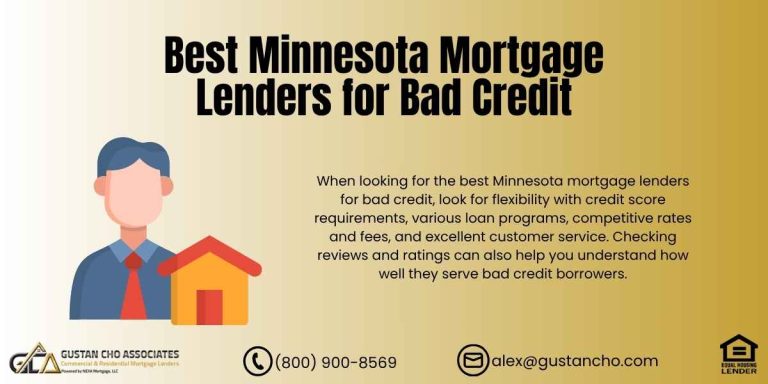This guide covers conventional loan 101 for new loan officers and borrowers. I like to congratulate those who recently took the NMLS exam and passed it. Now the fun part of becoming a loan officer starts. The NMLS exam is a tough 3 hour 125 question national test. Dale Elenteny, a senior mortgage loan originator at Gustan Cho Associates says the following about passing the NMLS exam:
The only way and best way candidates can pass this test is by studying hundreds of hours. Key is going over a few thousand multiple choice practice exams.
I have guided countless of new loan officer recruits who came to me for advice about taking and passing the NMLS test and starting a new career as a licensed mortgage loan originator. In the following paragraphs, we will cover conventional loan 101 for new loan officers and borrowers.
Here Is a Recap on Becoming a New Loan Officer
Becoming a mortgage loan officer is a process. Cannot decide to become a mortgage loan originator one day and try to get a job the next day and start originating loans.
Starting Out As New Loan Officer After Passing Exam and Getting Licensed
Although there are tons of useful information on the NMLS exam, what is on the exam does not train you to go out and start originating loans. Training a new loan officer takes time and it is like training a lawyer. Just because you graduated from law school and passed your bar exam does not mean that you are ready to practice law.
If licensed to practice law, however, a new lawyer needs training trying cases and going over many case studies. Same with a loan officer. There are so many rules and regulations.
There various different types of mortgage loan programs that it is almost impossible to learn everything overnight. It takes time, patience, and a lot of training by a senior loan officer to be the best loan officer. Even veteran loan officers do not know everything. Often times they need to consult with others when they run into a special type of case scenario. As a loan officer, borrowers will depend on loan officers for the best advice on which mortgage loan program for you to recommend.
New to Mortgages? Start With the Essentials
From credit scores to down payments, get the foundation you need to understand conventional loans.
Government Versus Conventional Loans
There are two different types of residential owner-occupant mortgage loan programs. Government-backed loans which are FHA, VA, and USDA loans. Conforming loans which are called Conventional loans. There is no government guarantee on conventional loans. There are times where a borrower does not qualify for an FHA Loan where they may qualify for a Conventional loan and vice versa. Borrowers will qualify for an FHA Loan but not Conventional loans.
Conventional Loans 101 for New Loan Officers Explained
Conventional loan 101 For New Loan Officers. Fannie Mae and Freddie Mac are the two mortgage giants that set mortgage lending guidelines on Conventional loans. Lenders need to follow Fannie Mae and/or Freddie Mac mortgage lending guidelines if they intend on funding Conventional loans to borrowers and resell the loans to Fannie Mae or Freddie Mac.
Once lenders fund conventional loans and if they intend on selling it to Fannie Mae or Freddie Freddie, these loans need to conform to Fannie Mae and/or Freddie Mac Guidelines. If they do not, Fannie and Freddie will not purchase. Lenders use their warehouse lines of credit to fund borrower’s loans.
Once they fund them, they turn around and resell them and replenish the warehouse lines of credit they used to fund the loan. In order for Fannie Mae or Freddie Mac to purchase the conventional loan a lender funds, lenders need to make sure that the way the mortgage loan has been structured conforms to Fannie Mae and/or Freddie Mac guidelines. This is why conventional loans are also called conforming loans. This holds true because they need to conform to Fannie Mae and/or Freddie Mac conforming standards.
Conventional Loan 101 For New Loan Officers: Private Mortgage Insurance
Private Mortgage Insurance is required on all conventional loans with less than 20% equity and/or 80% loan-to-value. Government loans are guaranteed by the government in the event if the borrower defaults on their mortgage loan and it goes into foreclosure. Lenders have the mentality where the borrower needs to have skin in the game in order to minimize their risk level.
That is why it is no rocket science that the more of a down payment a homebuyer puts down on a home purchase, the less risk the lender has. The less risk lenders has the lower the mortgage rate the borrower will get.
This does not apply for government loans. With FHA, VA, USDA Loans, whether the borrower puts down 3.5% or zero percent down on VA loans or USDA loans, or they put 50% down payment, there is no bearing on the mortgage rates. This because government loans is guaranteed by the government.
Conventional Versus Government Loans
This does not apply with Conventional loans. With Conventional loans, the more buyers puts down as a down payment, the lower the interest rate. Any borrower who puts down less than 20% down payment on a Conventional Loan home purchase is required to have private mortgage insurance .
The function of private mortgage insurance, also referred to as PMI, is in the event if the borrower defaults on their conventional loan, the private mortgage insurance company will cover part of the loss of the foreclosure to lenders.
It is similar to the government guaranteeing FHA, VA, and USDA loans. Private mortgage insurance can be canceled if the borrower reaches a 80% loan to value either by paying down the mortgage balance. Or by the home appreciating in value and the value increase being justified and verified through a home appraisal.
Conventional Loan 101 for Borrowers
Discover how conventional mortgages work and how to qualify in 2025.
Conventional Loan Requirements
Fannie Mae and/or Freddie Mac sets the conventional loan requirements.
Here are the basic Conventional loan requirements:
- The minimum credit score of 620.
- Fannie Mae allows for non-occupant co-borrowers.
- 5% down payment on a home purchase. 3% down payment on a home purchase is available for first time homebuyers.
- 45% debt to income ratio caps.
- 4 year waiting period after Chapter 7 Bankruptcy and 2-year waiting period after Chapter 13 Bankruptcy to qualify for conventional loan.
- 4 year waiting period to qualify for Conventional loan after a deed in lieu of foreclosure and/or short sale.
- 7 year waiting period to qualify for conventional loan after foreclosure.
Conventional Loan 101 for New Loan Officers and Borrowers
Master conventional loans with this easy guide for rookie loan officers and first-time borrowers. We break down eligibility, benefits, requirements, and FAQs in everyday language.
Introduction to Conventional Loan 101 for New Loan Officers and Borrowers
If you’re diving into home loans, you’ll probably bump into the conventional loan first. Unlike FHA, VA, or USDA loans, these mortgages don’t have government insurance. Instead, they stick to the rules of Fannie Mae and Freddie Mac—two government-backed organizations that buy loans from banks and lenders.
Understanding conventional loans is essential for new loan officers to help clients make smart choices. Knowing the pros, the requirements, and the possible bumps in the road lets homebuyers pick the mortgage that best suits them.
What Is a Conventional Loan?
A conventional loan is a home mortgage from private lenders like banks, credit unions, or mortgage companies. It has to align with the rules set by Fannie Mae and Freddie Mac. When a loan checks all those boxes, it’s called a conforming loan.
Borrowers can pursue non-conforming conventional loans, such as jumbo loans, when funding exceeds the standard county loan limits.
Advantages of Conventional Loans
Flexible Down Payment Choices
- First-time buyers can start with as little as 3% down.
- Stronger borrowers may find even lower down payment options.
No Upfront Mortgage Insurance Fee
Unlike FHA loans, conventional loans skip the big upfront mortgage insurance cost.
Cancelable Private Mortgage Insurance
After reaching 20% equity, borrowers can remove PMI, which cuts the monthly payment.
Broad Property Eligibility
Conventional loans can be used for:
- Primary homes.
- Second residences.
- Investment properties
Requirements for Conventional Loans
Credit Score
- The usual minimum is 620.
- Better scores can help lower interest rates and PMI costs.
Down Payment
- First-time buyers can start at 3% down.
- Most other borrowers put down 5% to 20%.
Debt-to-Income Ratio
- Most lenders cap debt-to-income at 45%, but a strong credit profile may stretch that to 50%.
Loan Limits
- The FHFA sets yearly conforming loan limits.
- In 2025, loan limits will depend on the county, with higher amounts allowed in areas with much greater home prices.
Key Considerations for Loan Officers
Educate Borrowers
Loan officers must show borrowers how credit scores, down payments, and income affect approval. Many borrowers think they must have flawless credit, but the guidelines are often more forgiving.
Match Loan Type to Needs
Some clients will do better with FHA or VA loans, while others are a better fit for conventional loans. Officers must look closely at what the borrower can afford, what they hope to achieve, and what they qualify for.
Conventional Loan 101 for New Loan Officers: Keep Guidelines Up to Date
Requirements for conventional loans can change with the housing market and government policies. Successful loan officers check the FHFA’s loan limits each year and follow any new rules from Fannie Mae and Freddie Mac.
Challenges of Conventional Loans
- Tighter credit score rules when compared to government loans.
- Bigger down payments for buyers who do not qualify for special programs.
- Private mortgage insurance (PMI) stays on the loan each month until the borrower has built enough equity.
Loan Officers: Build Confidence With Knowledge
Master conventional loan guidelines and help more clients get approved.
FAQs About Conventional Loan 101 for New Loan Officers
What is The Minimum Down Payment For a Conventional Loan?
First-time homebuyers may qualify with just 3% down but must meet certain eligibility criteria.
Do I Need Mortgage Insurance With a Conventional Loan?
Yep, if your down payment is less than 20%, you’ll have to pay PMI (private mortgage insurance). The nice part is you can drop it once your equity hits 20%.
What Credit Score Do I Need to Qualify?
Most lenders want you to score at least 620, but a higher score can snag you a better interest rate.
Can I Use a Conventional Loan For an Investment Property?
Sure can! Unlike FHA or VA loans, conventional loans can be used for second homes or rental properties.
How Are Conventional Loan Limits Set?
The Federal Housing Finance Agency (FHFA) sets the limits yearly, and places with high home prices can have higher caps.
Are There Income Limits For Conventional Loans?
Not usually. A few special programs with a 3% down payment might have some income caps.
Can a Borrower Refinance a Conventional Loan?
Absolutely! You can refinance to drop your rate, shorten the term, or remove some cash from your equity.
How Long Does it Take to Close on a Conventional Loan?
You’ll usually be done in 30 to 45 days, but some lenders can do it faster.
What’s The Difference Between Conforming and Non-Conforming Loans?
Conforming loans follow the guidelines of Fannie Mae and Freddie Mac. Non-conforming loans, like jumbo loans, go beyond those limits.
Why Pick a Conventional Loan Instead of an FHA Loan?
People with solid credit scores usually pay less in monthly private mortgage insurance, which lowers overall costs. Conventional loans also allow a wider range of property types, including vacation homes and certain multi-unit buildings. This flexibility and lower fees make a conventional loan a better match for many borrowers.
Conventional Loan 101 For New Loan Officers: Mortgage Part Of Bankruptcy Lending Guidelines
Conventional loan 101 for new loan officers on mortgage part of bankruptcy. There are many times when a borrower cannot qualify for an FHA loan. But will qualify for a conventional loan. Hopefully, this article conventional loan 101 for new loan officers will explain strategies in helping you as loan officers using creative ways of making the pre-approval process as smooth as possible.
With conventional loans, if borrowers had a prior mortgage as part of Chapter 7 Bankruptcy, there is a four-year waiting period to qualify from the discharged date of bankruptcy.
The foreclosure can be recorded at a later date. This is a huge benefit for folks who had a foreclosure as part of their Chapter 7 Bankruptcy where the foreclosure did not get recorded until years later. With FHA loans, there is a three-year mandatory waiting period to qualify from the recorded date of the foreclosure. The discharged date of the bankruptcy does not matter. There are millions of people who had a foreclosure as part of their Chapter 7 Bankruptcy. Their foreclosures did not get recorded until years after the discharged date of their bankruptcy. They still cannot qualify for an FHA loan but will qualify for a conventional loan.. The staff at Gustan Cho Associates is licensed in multiple states and is available 7 days a week, evenings, weekends, holidays. To qualify for a mortgage, please contact us at 800-900-8569 or text us for a faster response. Or email us at gcho@gustancho.com.
Borrow Smarter With a Conventional Loan
Know the requirements, benefits, and differences before you apply or advise.










Excellent information.